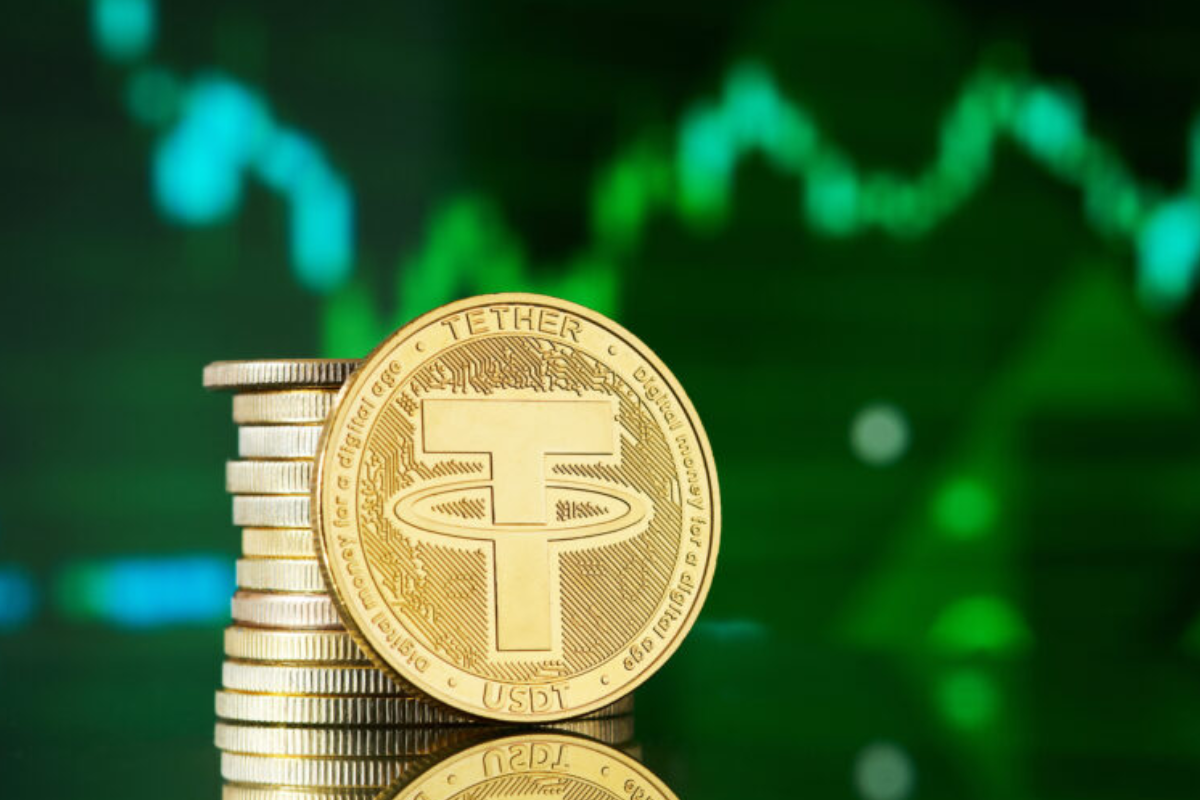Blockchain
Epazz Engages PCAOB Auditor in Order to Uplist to the OTCQB; Releases Contact Tracing Update to DeskFlex for COVID-19 Back to School
DeskFlex’s Desk and Room Scheduling System help prevent the onset of COVID-19 infection on college campuses with its contact tracing tool
Chicago, Illinois–(Newsfile Corp. – August 11, 2020) – Epazz Inc. DeskFlex (OTC Pink: EPAZ), a cloud-computing software provider company, announced today that it has engaged a PCAOB Auditor to audit 2018 and 2019 financials. Once the audit is complete, the company will uplist to OTCQB to provide more substantial transparency to investors.
DeskFlex desk and room scheduling system releases its newest software feature, the Contact Tracing tool to prevent and contain a possible outbreak in the workplace, schools, and campuses. DeskFlex’s Contact Tracing software screens students, faculty, employees, and registered users for symptoms of COVID infection upon logging into the system. It sends notifications to administrators when employees and students breach the social distancing protocols, and it allows contactless check-in and checkout reservations. Using the Contact Tracing tool, administrators can monitor contamination in their campuses and can act decisively to swiftly locate, notify, and isolate possibly infected individuals.
DeskFlex’s desk booking system has been in the software business since 1997, providing exceptional desk hoteling and intelligent conference room booking software that is useful in many industries, including Education, Health, Finance, Business, Government, and Enterprise. Epazz acquired DeskFlex in 2008 and has been making significant updates to the office hoteling system. Since the start of the COVID-19 pandemic, DeskFlex’s room booking system has been continuously upgrading its office reservation software to tighten health safety and security in the offices, schools and financial districts.
DeskFlex’s desk hoteling software integrates COVID compliant software and hardware devices such as the Social Distancing, Automatic Desk Sanitation, Visitor Management, Bluetooth beacons, Thermal Scanner, Mask Detection and Contactless Room Displays. The software upgrades aim to provide organizations the essential tools and technology to make offices, classrooms, and campuses safe for students, faculty, and employees.
According to Shaun Passley, Ph.D., CEO of Epazz, Inc.,
“We are pleased to announce that DeskFlex’s desk & room booking software is now more adept in preventing COVID-19 infections from happening in the offices and schools by automation of desk sanitation, integrated contact tracing ability, monitoring visitor, social distancing features, mask detection, and thermal scanners. Our team works hard to continuously improve our room scheduling system in order to better prevent and contain infection in the offices and schools.”
About DeskFlex.com
DeskFlex is a desk booking solution and room reservation software for conference rooms, workspaces, desks, car parking spaces, equipment, hoteling, and HotDesking, which helps office managers accommodate the occasional needs of mobile workers while reducing rent and facility costs. DeskFlex lets employees reserve space in advance or claim desks right away. It adjusts the telephone switch (PBX), so calls ring at the “desk du jour.” DeskFlex includes check-in, point-and-click floor maps, a web browser, a local kiosk, Outlook integration, and conference room scheduling.
About Epazz, Inc. (www.epazz.com)
Epazz, Inc., is a leading cloud-based software company that specializes in providing customized cloud applications to the corporate world, higher-education institutions, and the public sector. Epazz BoxesOS™ v3.0 is a complete web-based software package for small- to mid-size businesses, Fortune 500 enterprises, government agencies, and higher education institutions. BoxesOS provides many of the web-based applications organizations would otherwise need to purchase separately. Epazz’s other products are K9Sky.com kennel software and the Provitrac applicant tracking system.
SAFE HARBOR
This is the “Safe Harbor” Statement under the Private Securities Litigation Reform Act of 1995: certain statements contained in this press release are “forward-looking statements” within the meaning of the Private Securities Litigation Reform Act of 1995. Forward-looking statements can generally be identified by the use of forward-looking words such as “may,” “expect,” “intend,” “estimate,” “anticipate,” “believe,” and “continue” (or the negation thereof) or similar terminology. Such forward-looking statements are subject to risks, uncertainties, and other factors that could cause actual results to differ materially from future results or those implied by such forward-looking statements. Investors are cautioned that no forward-looking statement is a guarantee of future performance and that actual results may differ materially from those contemplated by such forward-looking statements. Epazz, Inc. assumes no obligation and has no intention of updating these forward-looking statements. It has no obligation to update or correct information prepared by third parties that are not paid for by Epazz, Inc. Investors are encouraged to review Epazz, Inc.’s public filings on SEC.gov and otcmarkets.com, including its unaudited and audited financial statements and its OTC market filings, which contain general business information about the company’s operations, results of operations, and risks associated with the company and its operations.
CONTACT: For more information, please contact
Investor Relations
(312) 955-8161
Blockchain
Venezuela’s Oil Giant Turns to Crypto as US Sanctions Bite Again

Venezuela’s state-controlled oil company, PDVSA, is ramping up its utilization of digital currencies in response to renewed US oil sanctions. With the Biden administration refusing to renew a license easing restrictions, PDVSA is facing increased pressure to find alternative payment methods for its crude oil and fuel exports. The move to digital currencies, particularly Tether (USDT), aims to circumvent frozen accounts resulting from US sanctions.
This strategic shift underscores Venezuela’s willingness to explore various currencies, including virtual assets, in its oil contracts. Traditionally, the oil market has operated predominantly in US dollars, but Venezuela’s adoption of digital currencies signals a departure from this norm.
Despite past corruption scandals, such as the uncovered $21 billion embezzlement involving oil export receivables, Venezuela’s oil exports have rebounded under the leadership of oil minister Pedro Tellechea. The country has reached a four-year high in oil exports, buoyed by US licenses permitting sales. To mitigate future risks from potential sanctions, PDVSA has implemented a new contract model requiring prepayment in Tether for spot oil deals.
Moreover, Venezuela is now mandating new customers to have digital wallets holding cryptocurrencies for oil transactions. This requirement reflects a broader strategic shift towards embracing digital currencies in the oil trade, indicating a willingness to adapt to evolving global financial landscapes.
However, Venezuela’s foray into digital currencies is not without challenges. The recent arrest of former Vice President Tareck El Aissami, accused of embezzling funds from oil sales using cryptocurrencies, highlights the risks associated with crypto transactions. This high-profile corruption case, dubbed the “PDVSA-crypto incident,” underscores the need for robust regulatory frameworks and measures to prevent misuse of digital assets in the oil industry.
Source: cryptonews.com
The post Venezuela’s Oil Giant Turns to Crypto as US Sanctions Bite Again appeared first on HIPTHER Alerts.
Blockchain
Crypto miners face energy refusal, restriction in Canadian provinces

The decisions made by the Canadian provinces of Manitoba and British Columbia regarding the provision of electricity to cryptocurrency mining operations highlight the growing concerns over energy consumption and its impact on local infrastructure.
In Manitoba, the extension of the moratorium on new power connections for cryptocurrency operations until April 30, 2026, reflects the government’s recognition of the significant strain that these operations place on the province’s electrical grid. The decision aims to buy time for the development of a long-term solution to manage the increasing demand for electricity from cryptocurrency miners. This move aligns with similar actions taken by other provinces, such as New Brunswick and Hydro-Québec, to address the challenges posed by the rapid growth of cryptocurrency mining operations.
Meanwhile, British Columbia has introduced legislation to regulate electricity service to cryptocurrency miners, signaling a more proactive approach to managing energy consumption in the province. By amending the Utilities Commission Act, the BC government aims to have the authority to prohibit, restrict, or regulate the provision of electricity to energy-intensive cryptocurrency mining operations. This move underscores the government’s commitment to ensuring the availability of electricity for essential services while addressing the concerns raised by the proliferation of cryptocurrency mining activities.
Overall, these actions reflect the need for policymakers to strike a balance between supporting innovation and economic development driven by cryptocurrency technologies while ensuring the sustainability of energy resources and the resilience of critical infrastructure. As the cryptocurrency industry continues to evolve, regulatory measures like those implemented in Manitoba and proposed in British Columbia are likely to become more common as governments seek to manage the impacts of cryptocurrency mining on their communities and environments.
Source: cointelegraph.com
The post Crypto miners face energy refusal, restriction in Canadian provinces appeared first on HIPTHER Alerts.
Blockchain
Tether Launches on TON Blockchain with USDT, XAUT

The integration of Tether’s USDT stablecoin and its gold-backed token, XAUT, onto The Open Network (TON) blockchain marks a significant development in the blockchain space. By bringing these stablecoins onto TON, Tether aims to enhance transaction efficiency and liquidity on the platform, particularly for decentralized applications (DApps) operating in sectors such as payments and gaming.
TON, which has gained attention recently due to Telegram’s involvement and revenue-sharing initiatives, stands to benefit from the deployment of Tether’s stablecoins. With its native cryptocurrency, Toncoin, reaching a market capitalization of $21.4 billion, TON has established itself as a prominent player in the cryptocurrency market.
Tether’s USDT stablecoin, boasting a circulating supply of nearly 110 billion, holds the title of the largest stablecoin globally and ranks as the third-largest cryptocurrency overall. This integration not only expands the utility of Tether’s stablecoins but also reinforces TON’s position as a versatile blockchain platform catering to diverse industry needs.
Overall, the integration of Tether’s stablecoins onto TON represents a strategic move to bolster the platform’s functionality and attractiveness to developers and users alike. As blockchain technology continues to evolve, collaborations and integrations like these are poised to drive innovation and growth in the decentralized finance (DeFi) ecosystem.
Source: forkast.news
The post Tether Launches on TON Blockchain with USDT, XAUT appeared first on HIPTHER Alerts.
-

 Blockchain7 days ago
Blockchain7 days agoBlockchain Transforming Travel: Quantum Temple’s Innovative Venture
-

 Blockchain4 days ago
Blockchain4 days agoPhoenix Group Engages BHM Capital as Liquidity Provider to Boost ADX Liquidity and Enhance Market Dynamics
-

 Blockchain5 days ago
Blockchain5 days agoQuantum eMotion Files a Patent for Quantum-based Blockchain Wallet Under the Patent Cooperation Treaty (PCT)
-

 Blockchain Press Releases5 days ago
Blockchain Press Releases5 days agoCanaan Shines at Blockchain Life 2024 in Dubai
-

 Blockchain Press Releases5 days ago
Blockchain Press Releases5 days agoBybit Institutional Report 2024: Institutions Become Bullish and Eye Challenger Chains, while VC Funding Resurges for Infrastructure, Gaming, and AI
-

 Blockchain5 days ago
Blockchain5 days agoElizabeth Warren Urges Treasury Secretary Yellen to Implement Strong AML/CFT Measures for Stablecoins
-

 Blockchain Press Releases6 days ago
Blockchain Press Releases6 days agoBybit and Franck Muller Partner with Sidus Heroes to Launch Cosmic Gears: A Pioneering Web3 Game with a $250,000 Prize Pool and Exclusive Watch Collection
-

 Blockchain7 days ago
Blockchain7 days agoEvolution of the Blockchain World: Doric Blockchain Drives Education and Adoption of Blockchain Technology and Tokenization in Latin America










































